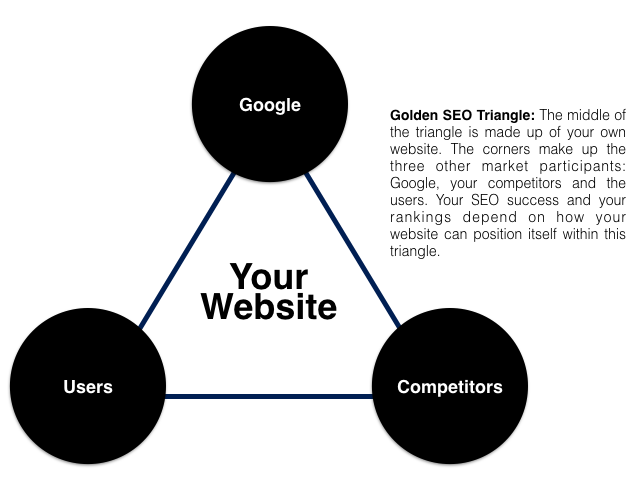Between the 14th Jan and the 21st Jan, 84% of .ac.uk domains, the official UK academia contribution to the Internet, gained significant visibility. Has the Google search algorithm given an in-country boost to an in-country top-level-domain? In this article we take a look at the data surrounding the case and ask, “why?”
The UK domain name structure is somewhat unique. Despite it being established before global country-level domain names were established, Government, education, the health service, police and other ‘subdomains’ are closely managed, in-country top-level domains (TLDs) in their own right. One of those, the ac.uk domain hosts all official education establishments in the UK.
…organisations in the United Kingdom whose core mission is tertiary education and/or public research…
Jisc.
The ac.uk TLD, like most TLDs, is not permitted to host web services but many domains that lie under it have just received a boost in visibility. The alert came to us through our weekly list of Top 100 domain winners.
Between the 14th Jan and the 21st Jan 2019 we saw these noteable statistics.
- 14 of the top-100 Visibility Index increases, across every TLD, came from the 2nd-level domain, .ac.uk.
- The 14 improving .ac.uk domains, by percentage, had an average visibility increase of 49%.
Discovering 271 .ac.uk domains, and a trend.
If we look at the competitors in the .ac.uk space, that is the domains having a similar ranking keyword spread, we find many more examples. ntu.ac.uk saw a huge rise of over 80% in the last 2 weeks. 72 of the closest 100 domains by rankings, were .ac.uk domains. 84% of those 72 .ac.uk domains saw a significant rise. 16% remained flat and only a few saw significant losses. southhampton.ac.uk was the only big loser.

Of the remaining 28 domains in the top 100 competitors, the non .ac.uk domains, only 33% saw a significant rise. 26% were unaffected and 41% saw losses. The increases are significantly focused on the .ac.uk TLD.
Update: 11 Feb. Although a small percentage of the gains were lost, it looks like the domains have retained their gains over the last 2 weeks.
We found 271 .ac.uk domains in a quick Tooblox search which, combined, have a visibility of 1200 points. It gives us an idea of the significance of the .ac.uk domain space.
If ac.uk was evaluated as a single domain it would be, at least, the 5th biggest by visibility in the UK search space.

Investigating why .ac.uk got a ‘boost.’
The question is, why? To find out, we analysed the four elements that can affect rankings. The SEO triangle is our starting point.

Competitors
Did .ac.uk gain because competition has gone from the SERPs? For a sweeping, multi-domain change like this it is unlikely but we must not rule it out. Perhaps one, huge, .ac.uk domain was removed?
Looking at the Top 100 losers for the week we see one domain that stands out. Quora.com lost a lot of visibility in the same week. Did the .ac.uk domains pick up the space in the UK? It doesn’t look like it. In a check through some keyword SERPs that Quora have lost in the last week we see no evidence that educational establishments have filled the gap.
The other big loser in the week was UK newspaper The Guardian (theguardian.com) who lost 31 Visibility Index points. The data for this domain tells us something interesting. Immediately we see hints, in the lost Top-10 rankings.
Toolbox Tip: For those with access to SISTRIX data, analyse any domain visibility drop using the ‘Ranking Changes’ menu item. Set the start and end dates and use the instant filter “Lost Keywords.” Read more about analysing Ranking Changes.

“Academic grants”, “aircraft engineering”, “apply for a job” and “biology research” are all search terms that theguardian.com lost over the same week. The top-10 search results have changed a lot too, with .ac.uk domains featuring strongly in the top ten. But it does not account for all of theguardian,co,uk’s losses and is, therefore, not enough to be giving other domains a significant boost.
bbc.co.uk have lost 26 points, mirror.co.uk 17.5, thesun.co.uk 8 points. dailymail.co.uk 6 points. Rather than one large competitor being removed from the SERPs, an initial analysis points to drops across-the-board.
The .ac.uk domain gains do not seem to be related to highly visible domains losing visibility. Competition is not the issue here.
Users
User signals and external information can sometimes trigger a QDF process where Google changes the SERPs due to a large-scale event or activity. Is this the week that universities send out their prospectuses and open applications? Perhaps UCAS, the UK university applications board, can tell us.
It turns out that the closing date for most university course applications in the UK is 15th Jan 2019. While this could be a tip for us, and perhaps for Google, there is no historical evidence that this happens in the visibility graphs, and with a total yearly application base of 550,000 (UCAS) it seems unlikely that a rush of late applicants would give Google cause to change the SERPs.
The Website(s)
Before we look at a potential Google algorithm change, lets look at the websites themselves. Consider, however, that we’re addressing a large number of domains here. Could all of these domains have introduced new content, changed architecture or improved technical SEO at the same time? Let’s look at the IP address ranges of some of the domains for a common data-centre which could indicated centralised management.
Checking 6 of the domains shows a diverse set of IP networks and owners and while the educational network in the UK, JANET, is operated by Jisc, the administrator of .ac.uk, this is just a part of the greater Internet. It seems unlikely that all these universities have had significant changes made to them in terms of technical SEO.
In terms of content it seems that all directories across these .ac.uk domains have gained which would suggest there has been no major content releases.
Whats left? Google boosts a TLD?
At this point in the research we entered a deep discussion about the potential reasons why. We find ourselves left with thoughts that we’ve listed below.
Point 1 – In general, Google does not apply any weighting to gTLDs. However, ac.uk is not a gTLD, it’s a second-level domain controlled by an in-country organisation.
Point 2 – A general, country-wide algorithm change seems unlikely. There’s no indication of a common change across other sectors we in our data but there’s always the case that we made a mistake and missed something.
Point 3 – Backlinks. It’s not possible to have working backlinks to ac.uk as there’s no website here (or permitted to be here.) It is theoretically possible to set a backlink to ac.uk however. External backlinks affecting such a wide range of sites, seems very unlikely though.
Point 4 – Intra ac.uk links. Our link database is able to show us potential ‘sitewide’ links. At this stage it’s not possible to see all the new links but it is possible that a new ac.uk-wide terms and conditions, privacy or about-us page with could have caused a re-valuation of these domains. Perhaps there’s an answer here. Perhaps there’s a risk of being evaluated as a link-network!
Point 5 – USA visibility. We are seeing visibility increases in the USA for the (small number) of domains that we have checked. Our initial research focused on the UK search market but it seems that whatever happened has affected at least the USA SERPs. We haven’t investigated this further.
Point 6 – A Google test. One method of testing pages, and one that is potentially low-cost for Google, is to trust a domain enough to put it in the top-10 and then to evaluate the short-click and CTR signals. Easier still would be to test a set of around 300 domains that are controlled through a gate-keeping process both in terms of the types of establishments behind the domain and, of course, strict standards of content quality. If this is the case we should see visibility tailing back off as Google re-evaluates user signals from the short-clicks and CTRs
Within the team here at SISTRIX we have slightly differing opinions as to the cause of this ‘boost’ for ac.uk domains. On one hand we have reservations about whether Google would do this. On the other, it does seem sensible that a 2nd-level domain that strictly contains fountains of knowledge should get recognition.
But could it be a simple link-based revaluation? An error?
What do you think?
